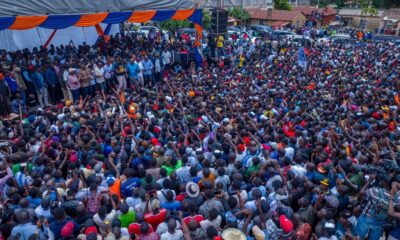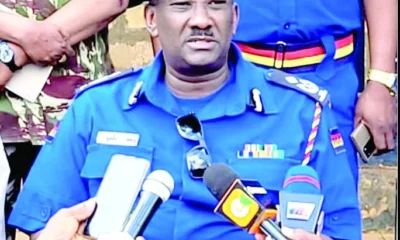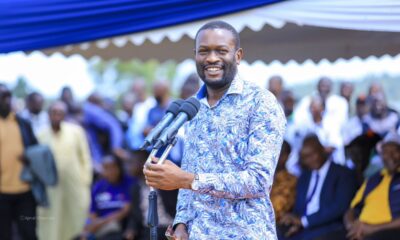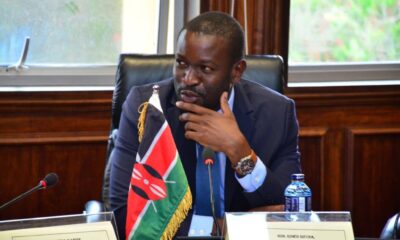Politics
Raila Declares ODM-UDA Deal Will Remain Until 2027, Defends Sifuna’s Right of Expression
“We have to protect the rights of people to speak. If Sifuna has spoken, he has a right to speak,”
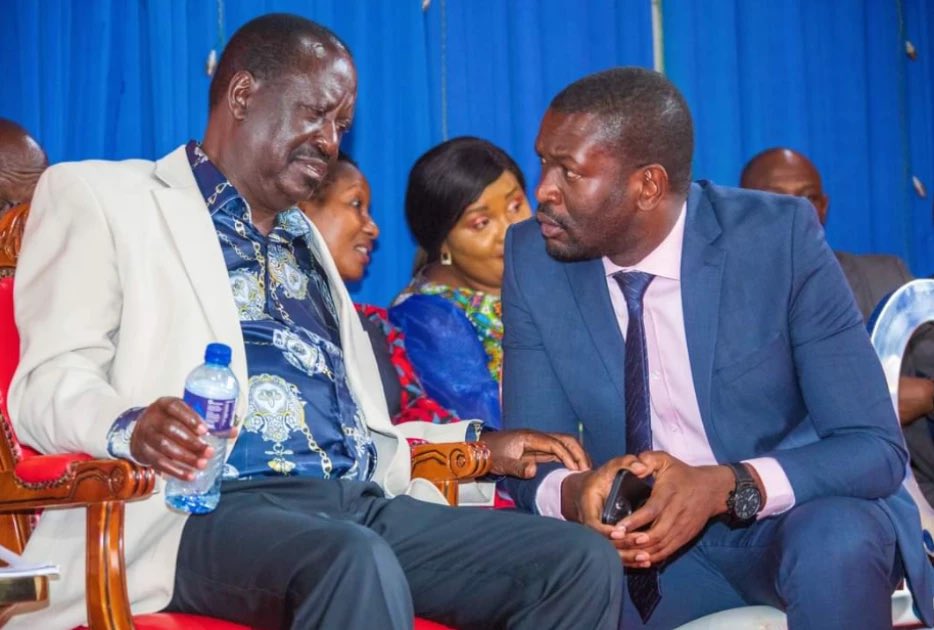
KAKAMEGA – Orange Democratic Movement leader Raila Odinga delivered a masterful display of democratic leadership on Friday, skillfully navigating internal party tensions while reaffirming his commitment to Kenya’s political stability through a continued partnership with President William Ruto’s administration.
Speaking at a packed delegates conference in Kakamega County, the former Prime Minister demonstrated the political acumen that has defined his decades-long career, addressing growing criticism of the ODM-UDA cooperation agreement with remarkable composure and strategic clarity.
In a move that showcased his dedication to democratic principles, Raila mounted a spirited defense of his Secretary-General Edwin Sifuna’s right to express dissenting views, even as those opinions have sparked heated debate within party ranks.
“We have to protect the rights of people to speak. If Sifuna has spoken, he has a right to speak,” Raila declared to thunderous applause, embodying the very essence of democratic discourse.
The seasoned politician’s handling of the situation revealed his deep understanding of political dynamics, as he clarified that the March 7, 2025 cooperation agreement was not a political merger but rather a sophisticated framework designed to address Kenya’s pressing challenges.
“We did not sign a coalition agreement with UDA. What we have is a structured understanding focused on issues affecting Kenyans, not positions, not politics,” he explained with characteristic eloquence.
Raila’s announcement that the broad-based government arrangement will continue until 2027 provides much-needed certainty in Kenya’s political landscape, while his promise of a comprehensive review demonstrates his responsiveness to grassroots concerns.
His acknowledgment that party members will ultimately decide the future beyond 2027 reflects his commitment to inclusive decision-making processes.
The ODM leader’s diplomatic response to calls from the crowd to abandon the cooperation agreement illustrated his political maturity, as he assured supporters that any major decisions would emerge from collective deliberation rather than unilateral action.
“I have heard your voices. I respect your opinions. But let us reason together,” he said, striking the perfect balance between leadership and consultation.
Perhaps most impressive was Raila’s nuanced defense of Edwin Sifuna against mounting pressure from some quarters, with the party leader emphasizing that internal discussions would be handled through proper party structures rather than public exchanges.
This approach underscores his commitment to institutional governance and orderly political processes.
The Kakamega conference ultimately showcased Raila Odinga at his finest – a statesman capable of managing complex political relationships while maintaining his party’s democratic values and Kenya’s broader political stability.
Kenya Insights allows guest blogging, if you want to be published on Kenya’s most authoritative and accurate blog, have an expose, news TIPS, story angles, human interest stories, drop us an email on [email protected] or via Telegram
-

 Grapevine2 weeks ago
Grapevine2 weeks agoAlleged Male Lover Claims His Life Is in Danger, Leaks Screenshots and Private Videos Linking SportPesa CEO Ronald Karauri
-

 Grapevine1 week ago
Grapevine1 week agoRussian Man’s Secret Sex Recordings Ignite Fury as Questions Mount Over Consent and Easy Pick-Ups in Nairobi
-

 Investigations5 days ago
Investigations5 days agoMulti-Million Dollar Fraud: Three Kenyans Face US Extradition in Massive Cybercrime Conspiracy
-

 Economy4 days ago
Economy4 days agoIran Demands Arrest, Prosecution Of Kenya’s Cup of Joe Director Director Over Sh2.6 Billion Tea Fraud
-

 Investigations2 weeks ago
Investigations2 weeks agoEpstein’s Girlfriend Ghislaine Maxwell Frequently Visited Kenya As Files Reveal Local Secret Links With The Underage Sex Trafficking Ring
-

 News3 days ago
News3 days agoTHE FIRM IN THE DOCK: How Kaplan and Stratton Became the Most Scrutinised Law Firm in Kenya
-

 Business4 days ago
Business4 days agoA Farm in Kenya’s Rift Valley Ignites a National Reckoning With Israeli Investment
-

 Business2 weeks ago
Business2 weeks agoM-Gas Pursues Carbon Credit Billions as Koko Networks Wreckage Exposes Market’s Dark Underbelly

